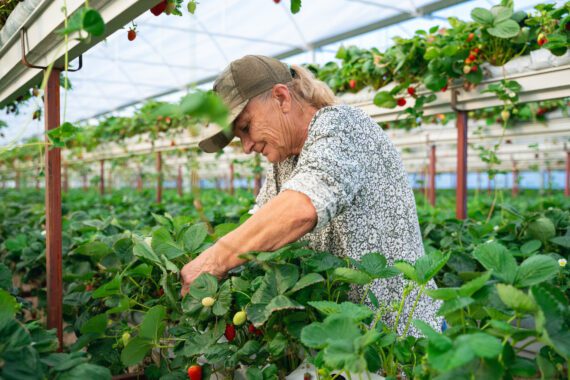Washington, D.C. – Bread for the World welcomes yesterday’s reintroduction of H.R. 1567, the Global Food Security Act, in the House of Representatives and the ways it will help end hunger.
The act builds upon the successes of the Feed the Future initiative. It develops a comprehensive strategy that will further advance food and nutrition security in Feed the Future’s 19 focus countries.
“This bill demonstrates that ending hunger around the world is not a partisan issue. It is a priority that should be held by everyone,” said Rev. David Beckmann, president of Bread for the World.
Since its creation in 2010, Feed the Future has helped more than seven million small farmers in developing countries increase the amount of food they grow. In 2013, the initiative provided nutritious foods to more than 12.5 million children.
The Global Food Security Act includes other provisions to address hunger. The act prioritizes country ownership, sustainable agriculture development, and nutrition for children during the critical 1,000 days of life from pregnancy to age 2. It includes important provisions related to women’s empowerment.
“Women farmers produce well over half of all the food grown in the world. This includes up to 80 percent in sub-Saharan Africa and 60 percent in Asia,” added Beckmann. “Eliminating barriers for women farmers helps their long-term economic prosperity. It also improves their children’s nutrition, health, and lifelong potential.”
“We thank our partners and advocates who have pressed the House to reintroduce this legislation,” said Beckmann. “We urge the House to consider the bill’s passage, and call on the Senate to introduce a similar version of the legislation as well. In doing so, we will ensure Feed the Future is made a permanent program that will help move us toward ending hunger around the world within our lifetime.”
The House’s Feed the Future Global Food Security Act of 2015 was introduced by Reps. Chris Smith (R-N.J.); Betty McCollum (D-Minn.); Ed Royce (R-Calif.); Eliot Engel (D-N.Y.); Jeff Fortenberry (R- Neb.); Karen Bass (D-Calif.); Dave Reichert (R-Wash.); Rosa DeLauro (D-Conn.); Ander Crenshaw (R-Fla.); Adam Smith (D-WA); Erik Paulsen (R-MN); David Cicilline (D-RI); and James McGovern (D-MA).



